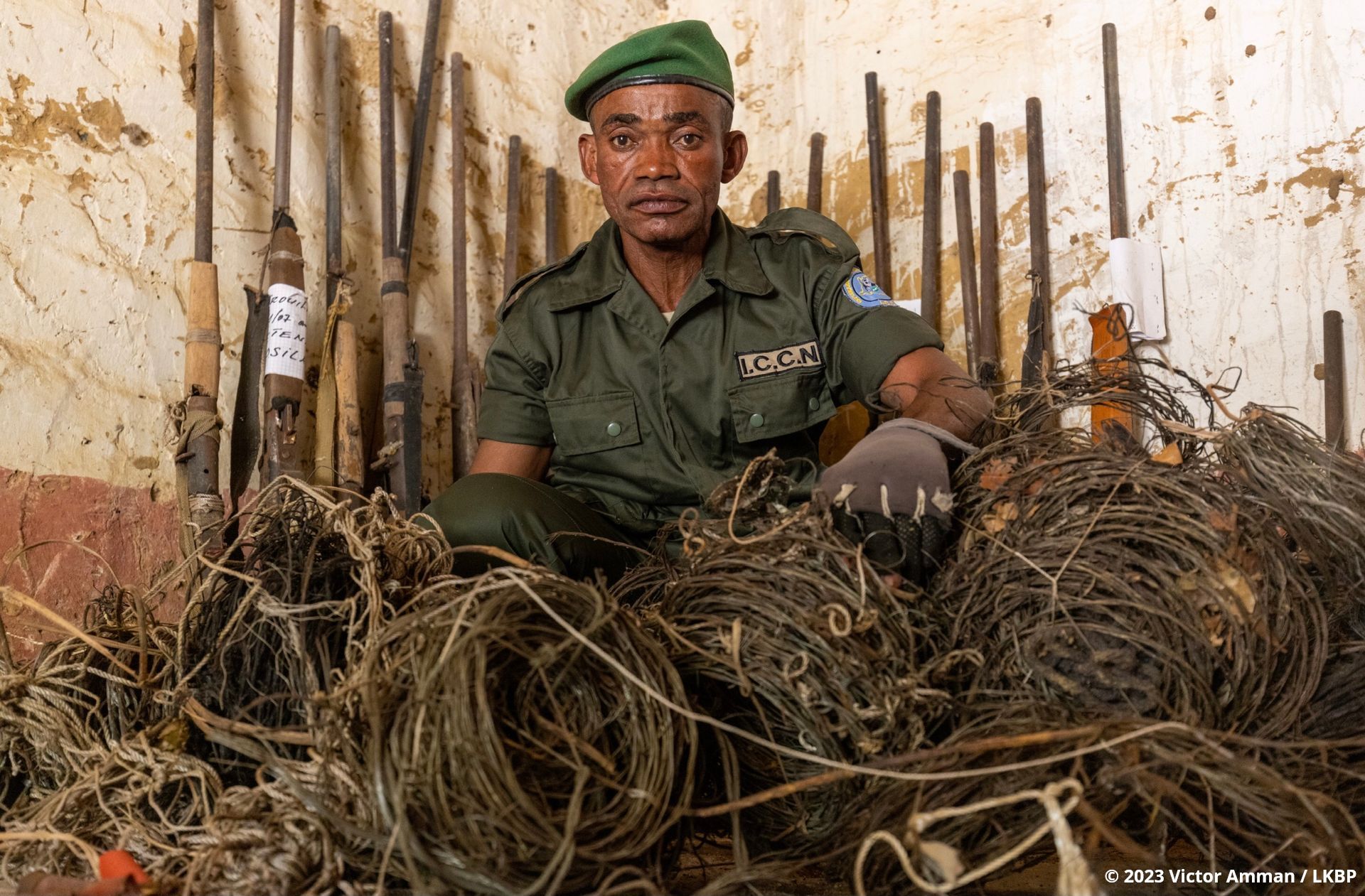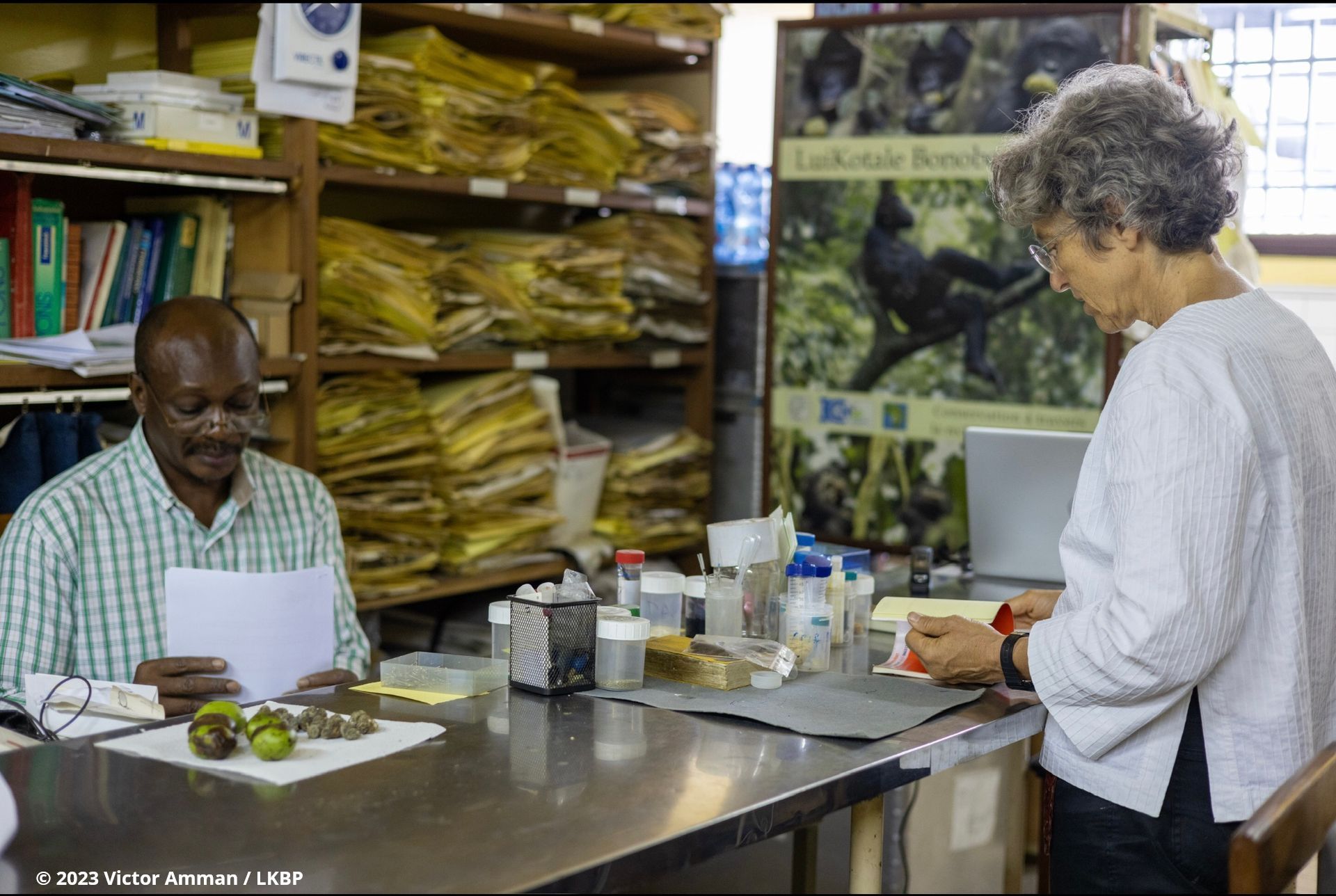Our activities
Bonobo Alive has dedicated itself to the preservation of wild bonobos and their indigenous habitat. Central to this mission is the establishment of secure sanctuaries for these great apes. Recognizing that sustainable species conservation necessitates the active involvement of local communities residing within the bonobos' habitat, Bonobo Alive not only focuses on protecting wildlife and flora but also extends support to rural populations residing in forest villages.

Anti-poaching patrols
Biomonitoring
Assessing the effectiveness of Bonobo Alive's initiatives necessitates comprehensive data on the status of bonobos and other wildlife. To achieve this, systematic population surveys are conducted using camera traps over extended periods. These traps automatically capture moving objects, enabling standardized documentation of wild animals. A key advantage of this method is its ability to account for nocturnal and elusive species, thereby enhancing biodiversity documentation. Furthermore, this technology enables further insight into the utilization patterns of forest habitats. The objective of biomonitoring is to assess the influence of Bonobo Alive's patrols and conservation endeavors on the population dynamics of bonobos and other endangered species.

Health
Bonobos inhabiting the LuiKotale forest regularly interact with humans, placing them at heightened susceptibility to potential health threats. To mitigate the risk of transmitting human pathogens to these wild animals, a set of hygiene regulations is enforced. These regulations include measures such as wearing masks and maintaining a minimum distance during interactions. Additionally, daily data collection is conducted to monitor the health status of bonobos, including responses to injuries, frequency of coughing, and duration of nest occupancy. By analyzing this foundational data, any deviations from the normative state can be promptly identified. These deviations often serve as initial indicators of illness, guiding targeted investigations into the type and source of pathogens.
School

Training funding

Research and teaching
In order to preserve biodiversity, the sustainable protection of the natural flora and fauna of the central Congo Basin holds exceptional significance. Equally crucial is understanding the beneficial traits of animals and plants within this ecosystem. With backing from Bonobo Alive, Dr. Musuyu Muganza, from the Institut National de Recherche Biomedicale, explores the medicinal properties of plants consumed by humans and bonobos. Simultaneously, he educates students at the University of Kinshasa, serving as a vital amplifier for Bonobo Alive's mission.






